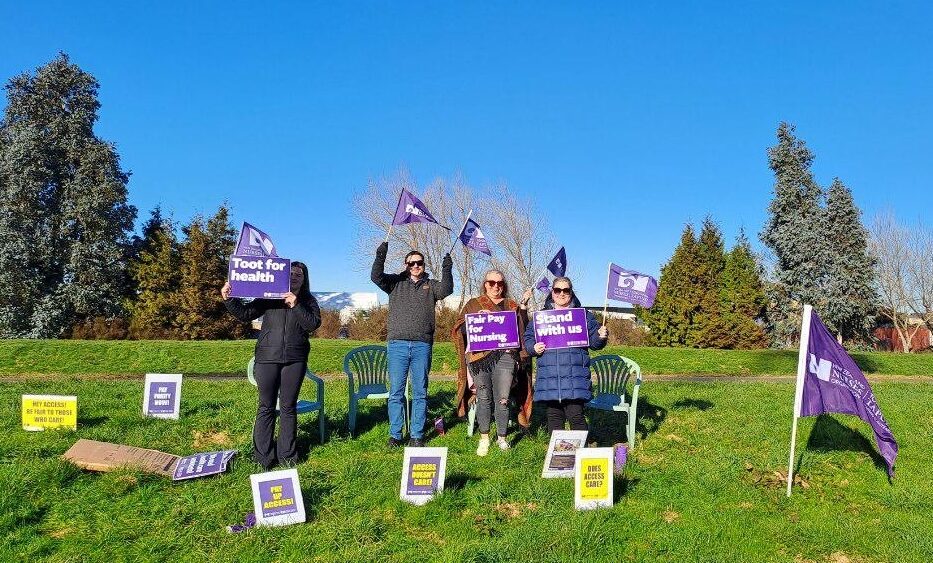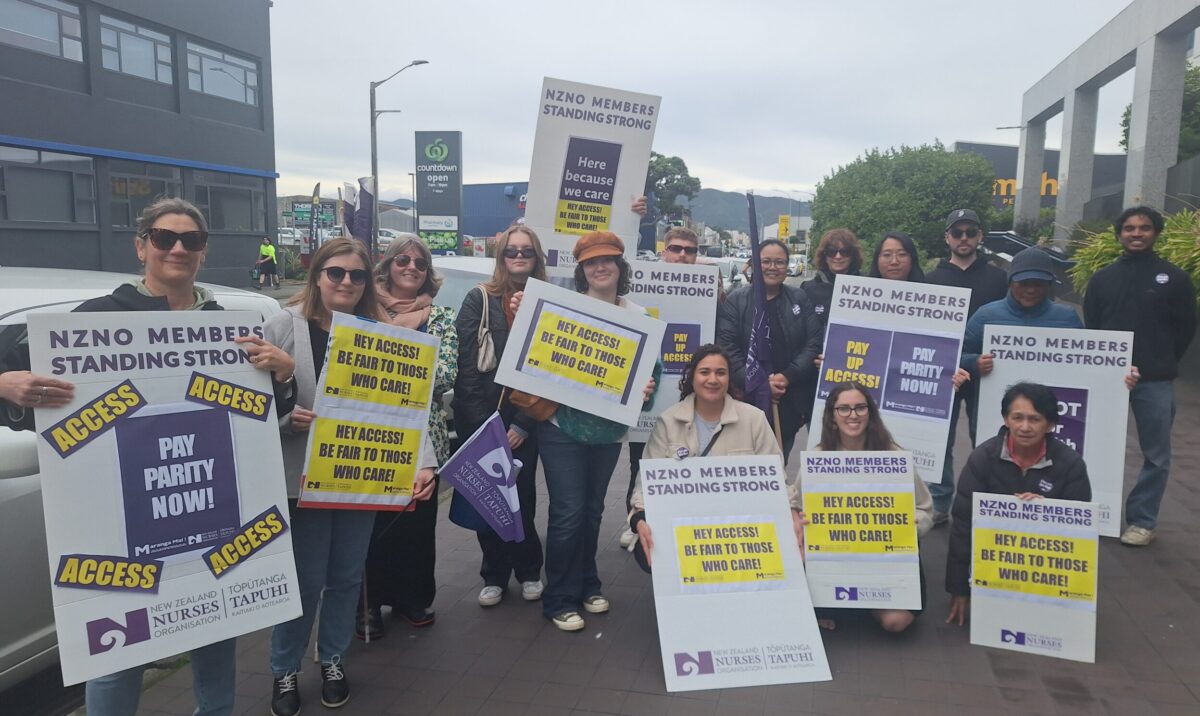NZNO — Tōpūtanga Tapuhi Kaitiaki o Aotearoa delegate Rachael Webb said it wasn’t fair that nurses who cared for people in their homes were paid up to $18,000 less per year than hospital nurses.
‘We feel we have the same qualifications and experience and we work just as hard — we should be paid exactly the same.’
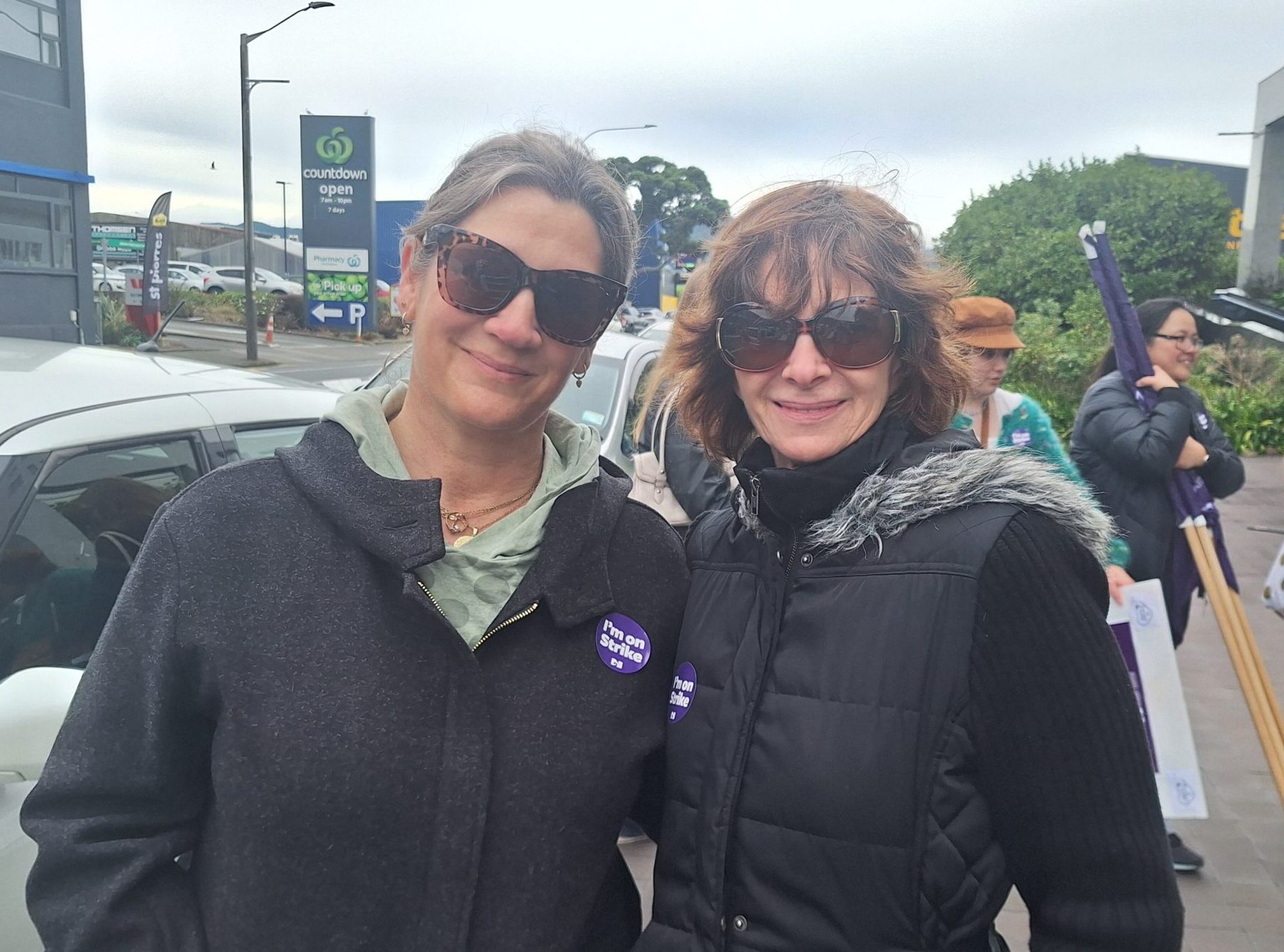
“We feel we have the same qualifications and experience and we work just as hard — we should be paid exactly the same,” she told Kaitiaki from the small but loud picket line on Pito-one’s busy Jackson Street in the Hutt Valley, as motorists tooted their support on Monday.
Access Community Health is a private company contracted by Te Whatu Ora, Ministry of Health and ACC to provide support to people in their homes with injuries, disabilities or who have been recently discharged from hospital.
Crucial link
Community nurses worked closely with district nurses, occupational therapists and hospitals, allowing people, often elderly, to stay safely in the community.
“Our service is a link in a chain between tertiary and primary health,” Webb said.
“We facilitate care for people coming out of hospital and staying in their own homes — it’s really important they can do that.”
‘The community needs nurses to be passionate and give the care they need.’
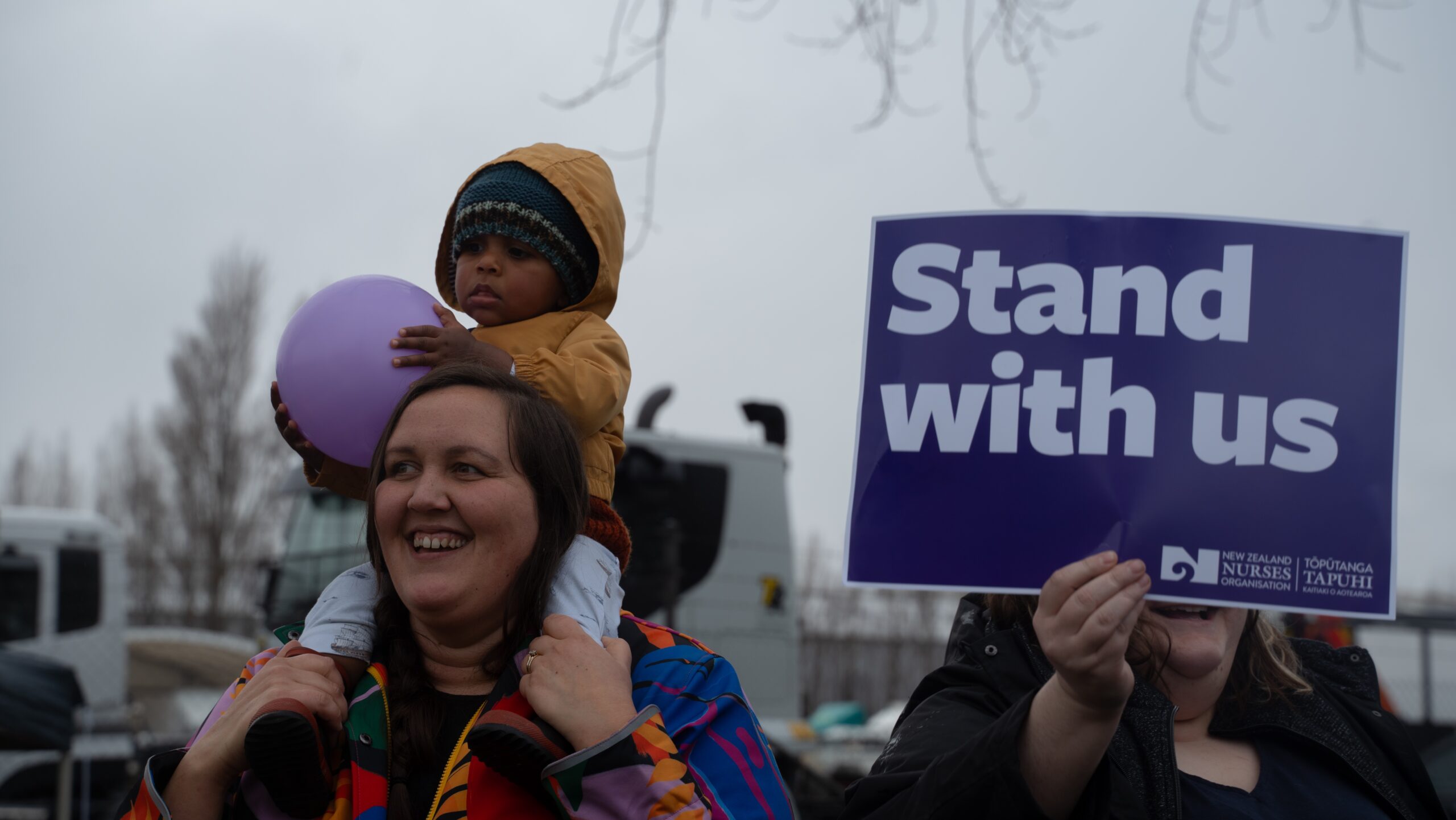
Community nurses had chosen to work with people in their homes and were passionate about their work, Webb said. “But we are drained, just like the other health services. The pressure is immense.
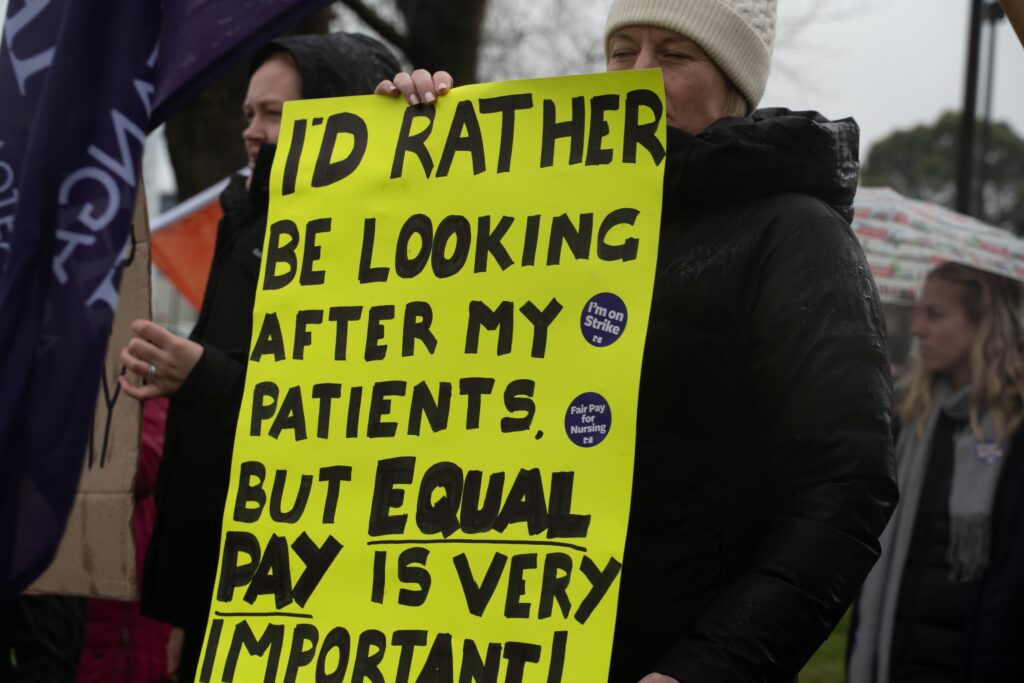
“We work really hard for our clients, because we care — but we have families to feed.”
Webb said it would be easier to walk away from community nursing — and many had, in search of better salaries elsewhere.
“But why would you want to walk away from something you’re passionate about?, she said. “The community needs nurses to be passionate and give the care they need.”
‘Not even close’ to cost of living
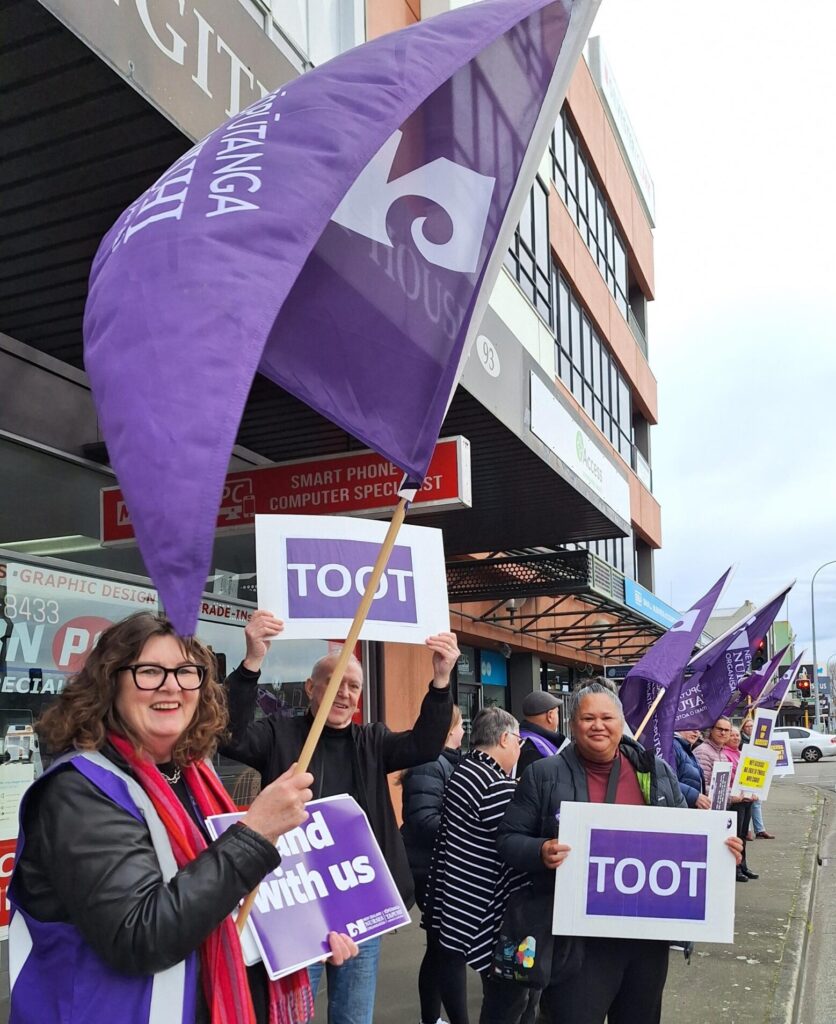
NZNO — Tōpūtanga Tapuhi Kaitiaki o Aotearoa members have been in bargaining with Access for more than a year. Yet their current offer was “not even close” to a cost-of-living increase — while workloads had continued to grow, delegate Linda Ewbank said.
‘We work really hard for our clients, because we care — but we have families to feed.’
“The company has kept us bound in a lower pay scale with no opportunity to move forward in these negotiations — there have been roadblocks throughout.”
As well as pay parity, community nurses wanted similar sick leave and long service leave entitlements as Te Whatu Ora, as well as recognition for experience.
Access Community Health and Total Care Health Services were both sold last year by Green Cross Health to Australian private equity company, Anchorage, for NZ$50 million.

Access began in 1927 and used to be staffed by “bush nurses” from the women’s division of Federated Farmers, who would care for people in remote rural settings, often travelling on horseback.
Access chief executive Androulla Kotrotsos said she “fully supports the rights of individuals to strike and highlight the disparity in funding for nurses in our sector”.
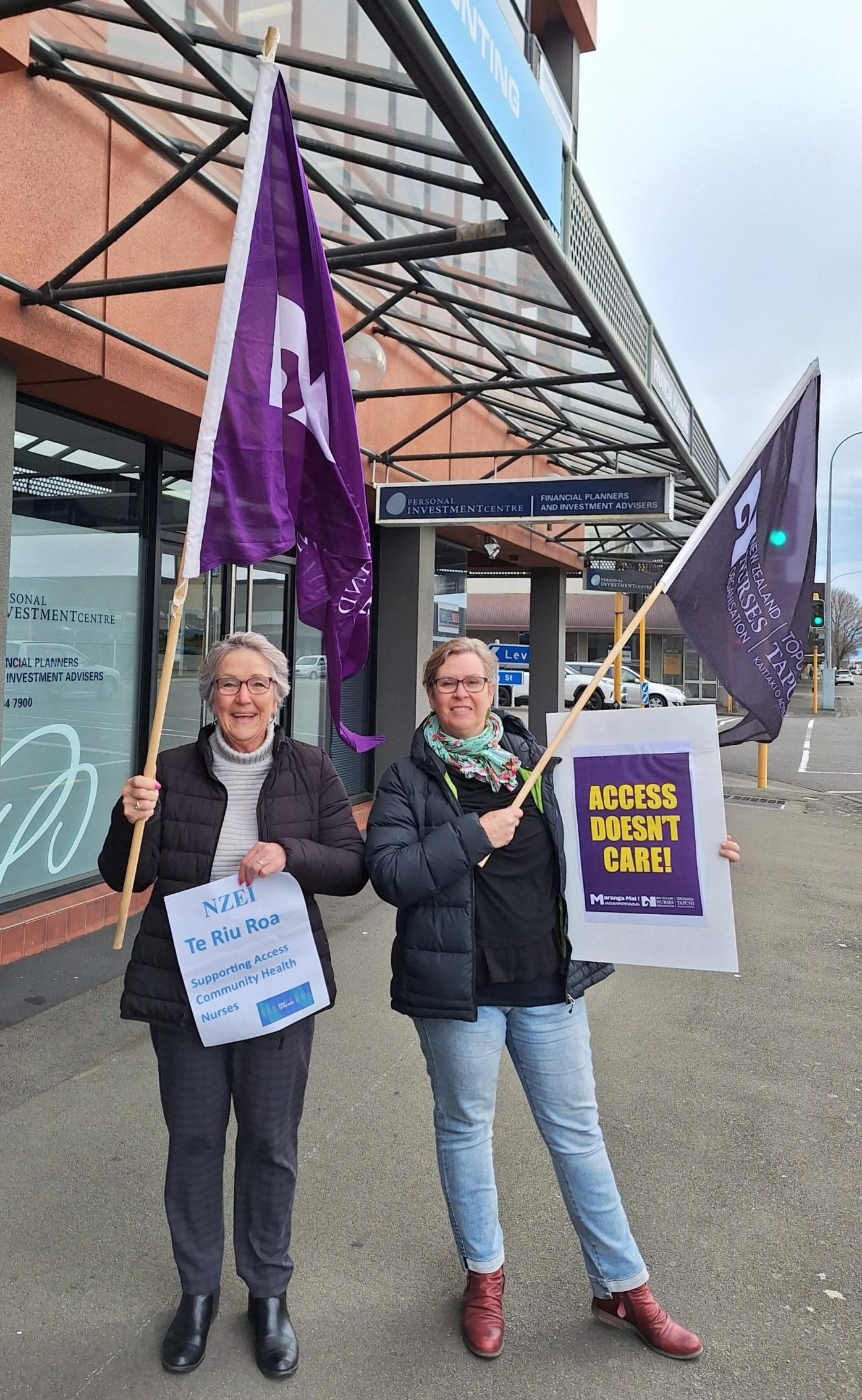
Pay parity with hospitals “remains beyond rates Te Whatu Ora is willing to provide us”, she told Kaitiaki via email.
“While Te Whatu Ora is paying their own nurses at the higher rates negotiated in the [2023 collective agreement], they are not passing on enough funding to ensure these primary health care nurses are paid the same.”
However, Te Whatu Ora group manager Mark Powell said while Te Whatu Ora provided annual funding increases for increasing costs including wages, it was not responsible for pay negotiations.

“That responsibility rests with Access and the union representing the employees.”
Powell said its funding to Access increased by five per cent on July 1, 2023, then another 3.2 per cent on July 1, 2024. That was on top of a funding boost for primary health nurses last year in recognition of the pay disparity given to employers, including Access, he said.
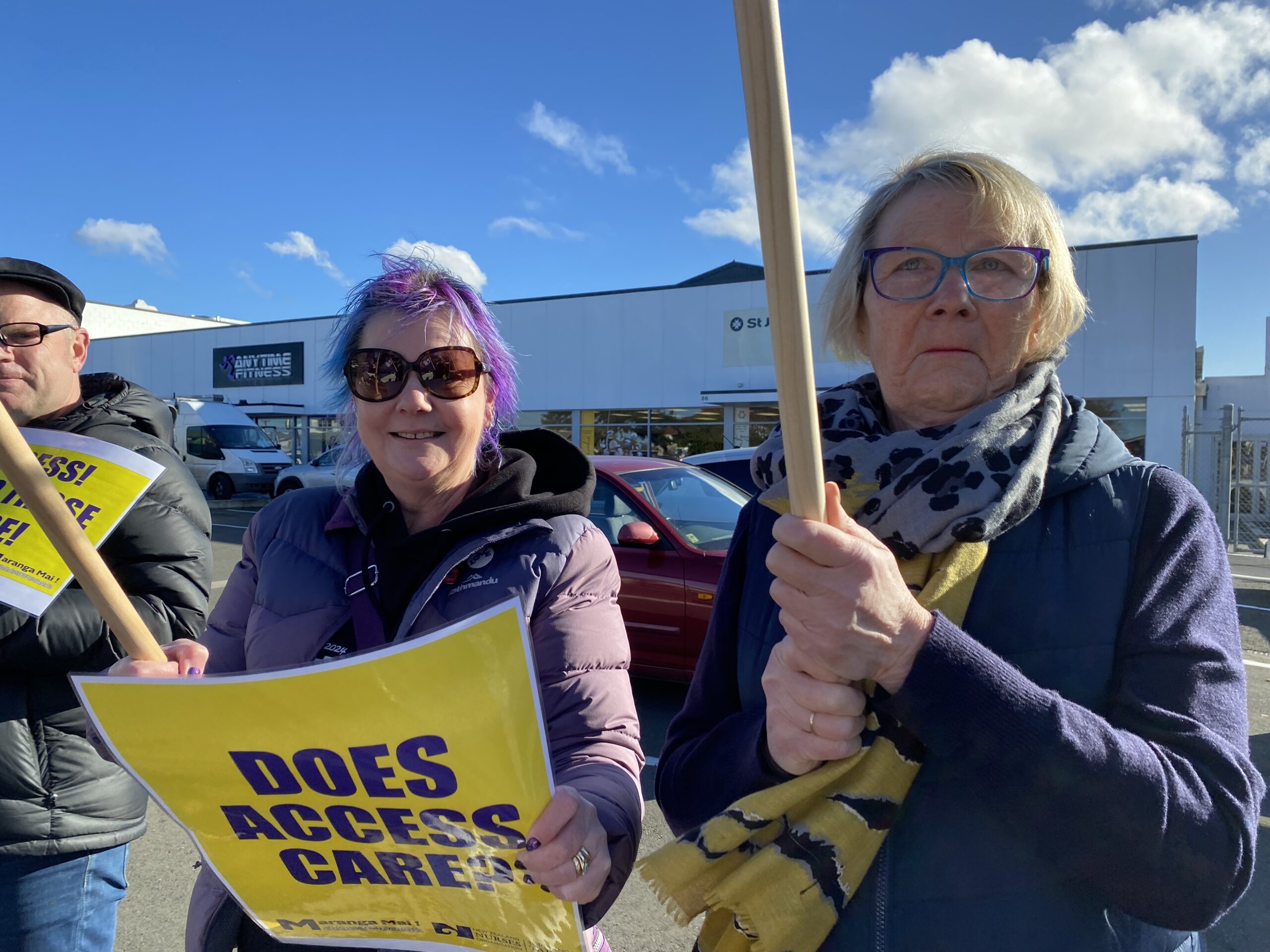
Webb said Access — as a profit-making company — should be prepared to top up the difference itself.
“They are not willing to take any responsibility or put any investment into their own nurses.”
“We just don’t feel valued,” said Webb. Mediation is planned for Monday and members were now preparing for a second strike next week.
Nurses and kaiāwhina in primary health care have long been battling for pay parity with hospital staff — a gap which widened further after Te Whatu Ora members accepted a new pay deal last year.
